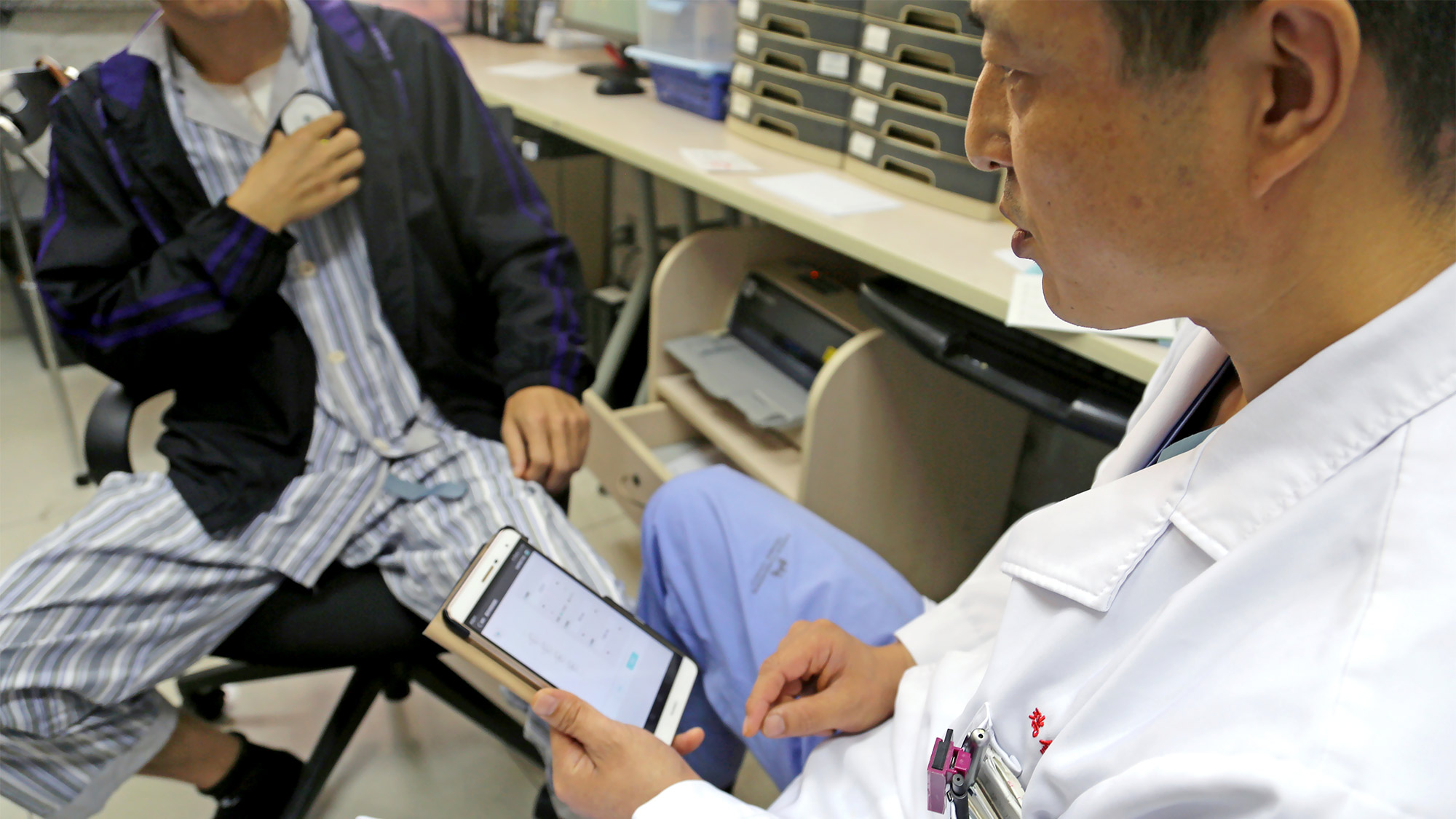A Man in China Had Electrodes Implanted in His Brain to Treat His Meth Addiction. How Could It Work?

Get the world’s most fascinating discoveries delivered straight to your inbox.
You are now subscribed
Your newsletter sign-up was successful
Want to add more newsletters?

Delivered Daily
Daily Newsletter
Sign up for the latest discoveries, groundbreaking research and fascinating breakthroughs that impact you and the wider world direct to your inbox.

Once a week
Life's Little Mysteries
Feed your curiosity with an exclusive mystery every week, solved with science and delivered direct to your inbox before it's seen anywhere else.

Once a week
How It Works
Sign up to our free science & technology newsletter for your weekly fix of fascinating articles, quick quizzes, amazing images, and more

Delivered daily
Space.com Newsletter
Breaking space news, the latest updates on rocket launches, skywatching events and more!

Once a month
Watch This Space
Sign up to our monthly entertainment newsletter to keep up with all our coverage of the latest sci-fi and space movies, tv shows, games and books.

Once a week
Night Sky This Week
Discover this week's must-see night sky events, moon phases, and stunning astrophotos. Sign up for our skywatching newsletter and explore the universe with us!
Join the club
Get full access to premium articles, exclusive features and a growing list of member rewards.
A man in China who spent years battling a methamphetamine addiction has had a device inserted into his brain to treat his addiction, according to news reports.
The man is a participant in one of the world's first clinical trials to use deep brain stimulation (DBS) to treat drug addiction, according to The Independent. More than six months following the surgical procedure at Shanghai's Ruijin Hospital, he remains drug-free.
But what is DBS, and why are some researchers turning to it in attempts to treat addiction? [10 Things You Didn't Know About the Brain]
DBS involves surgically implanting a pacemaker-like device into a specific area of the brain, said Dr. Ashesh Mehta, director of epilepsy surgery at Northwell Health's Comprehensive Epilepsy Center in Great Neck, New York. An electrical current passes through the device, delivering tiny electrical shocks to the targeted area.
In theory, "in patients with drug addiction, the electrical current targets the area of the brain that controls cravings, thereby reducing the need for drugs," said Mehta, who was not involved with the Chinese man's case. This area of the brain is called the nucleus accumbens.
DBS has been approved in the U.S. to treat neurological disorders such as epilepsy and Parkinson's disease; however, using it to treat drug addiction has been somewhat controversial. Although animal studies have shown promising results, critics of DBS treatment for drug addiction are reluctant to advocate its use with human subjects, according to The Independent. They argue that the treatment does not address the interplay of biological, social and psychological factors that make up addictive behavior.
Still, the approach has gotten the attention of experts in the U.S. who are desperately seeking new and effective treatments for addiction after others have failed. More than 70,000 Americans died from drug overdoses in 2017, including those from illicit drugs and prescription opioids — a twofold increase since 2007, according to the National Institute on Drug Abuse.
Get the world’s most fascinating discoveries delivered straight to your inbox.
In an effort to reduce deaths due to drug addiction, the U.S. Food and Drug Administration (FDA) has sanctioned a DBS trial for opioid addiction at the West Virginia University Rockefeller Neuroscience Institute, The Independent reported. The trial, led by Dr. Ali Rezai, the institute's director, is slated to begin as early as June.
Globally, there are eight registered DBS clinical trials for drug addiction, according to clinicaltrials.gov, a database from the U.S. National Institutes of Health. Six are located in China, one is in France and one is in Germany.
In light of the growing drug epidemic in the U.S., Mehta concurred that researchers need to explore new treatment methods for addiction. DBS, however, is just a part of a comprehensive treatment plan, he said. "As with epilepsy, DBS is one component of treatment for drug addiction," Mehta told Live Science, adding that it is a surgical complement to both medical and behavioral therapies.
As with any surgery, there are risks, and DBS is no exception, he added. "The primary risks are bleeding, infection and stroke," Mehta said, "but the overall risk is lower in a young person in otherwise good health."
- 10 Things We Learned About the Brain in 2018
- These 'Barbaric' Medical Treatments Are Still Used Today
- 10 Things You Didn't Know About You
Originally published on Live Science.
 Live Science Plus
Live Science Plus





